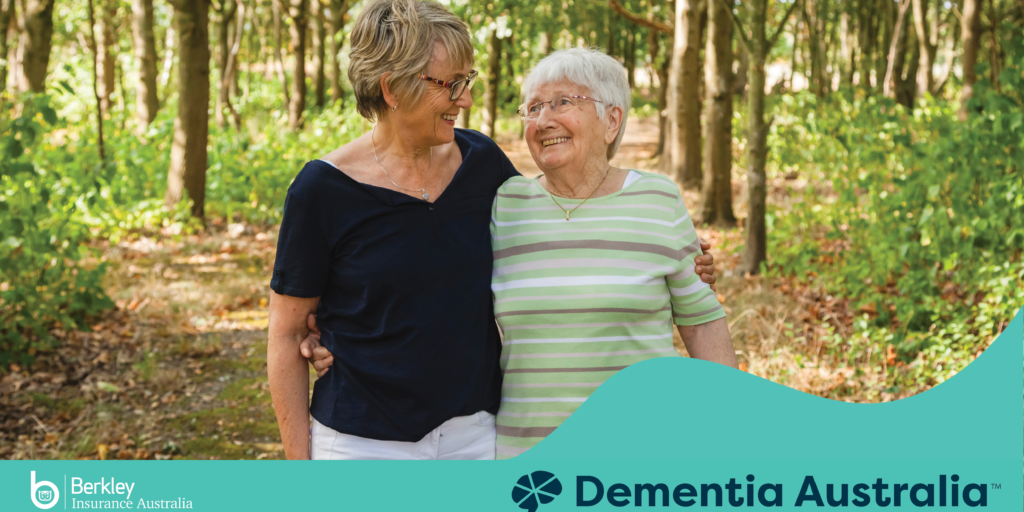
What is Dementia?
Dementia is the second leading cause of death for Australians and the leading cause of death for women. So, what is dementia and what does it mean for the estimated 487,500 Australians currently living with Dementia?
What is dementia?
Dementia describes a collection of symptoms that are caused by disorders affecting the brain. It is not one specific disease.
Dementia affects thinking, behaviour and the ability to perform everyday tasks. Brain function is affected enough to interfere with the person’s normal social or working life.
Who gets dementia?
Most people with dementia are older, but it is important to remember that not all older people get dementia. It is not a normal part of ageing.
Dementia can happen to anybody, but it is more common after the age of 65 years. People in their 40s and 50s can also have dementia. For more information about younger onset dementia go to the younger onset dementia hub.
What causes dementia?
There are many different forms of dementia and each has its own causes.
The most common types of dementia are Alzheimer’s disease, Vascular dementia, Dementia with Lewy bodies, Fronto Temporal Lobar Degeneration (FTLD), Huntington’s disease, Alcohol related dementia (Korsakoff’s syndrome) and Creutzfeldt-Jakob disease.
Is it dementia?
There are a number of conditions that produce symptoms similar to dementia. These include some vitamin and hormone deficiencies, depression, medication clashes or overmedication, infections and brain tumours.
It is essential that a medical diagnosis is obtained at an early stage when symptoms first appear, to ensure that a person who has a treatable condition is diagnosed and treated correctly.
If the symptoms are caused by dementia, an early diagnosis will mean early access to support, information, and medication should it be available.
Can dementia be inherited?
This will depend on the cause of the dementia, so it is important to have a firm medical diagnosis.
If you are concerned about the risk of inheriting dementia, consult your doctor or contact Dementia Australia to speak to a counsellor.
Most cases of dementia are not inherited.
What are the early signs of dementia?
The early signs of dementia are very subtle and vague and may not be immediately obvious. Some common symptoms may include:
- Progressive and frequent memory loss
- Confusion
- Personality change
- Apathy and withdrawal
- Loss of ability to perform everyday tasks.
What can be done to help?
At present, there is no prevention or cure for most forms of dementia. However, some medications have been found to reduce some symptoms. Support is vital for people with dementia. The help of families, friends and carers can make a positive difference to managing the condition.
This June Berkley Insurance Australia pledges to donate $1 from every Open Market Policy bound in June to Dementia Australia supporting the Dementia Australia Research Foundation.
For more information or to donate click here.
* BIA is authorised to fundraise for Dementia Australia
Related Links
Quote and Bind a Policy Instantly
BIA Supports Dementia Australia this June
Important Notice
Berkley Insurance Company (limited company incorporated in Delaware, USA) ABN 53 126 559 706 t/as Berkley Insurance Australia is an APRA authorised general insurer. Information provided is general only, intended for brokers and has been prepared without taking into account any person’s particular objectives, financial situation or needs. Insurance cover is subject to terms, conditions, limits, and exclusions. When making a decision to buy or continue to hold a product, you should review the relevant policy documents.
Share this post on
The Importance of Association Liability Insurance for Associations
Professional Indemnity: Common Policy Exclusions
Celebrating a Decade of Partnership with Community Underwriting!


